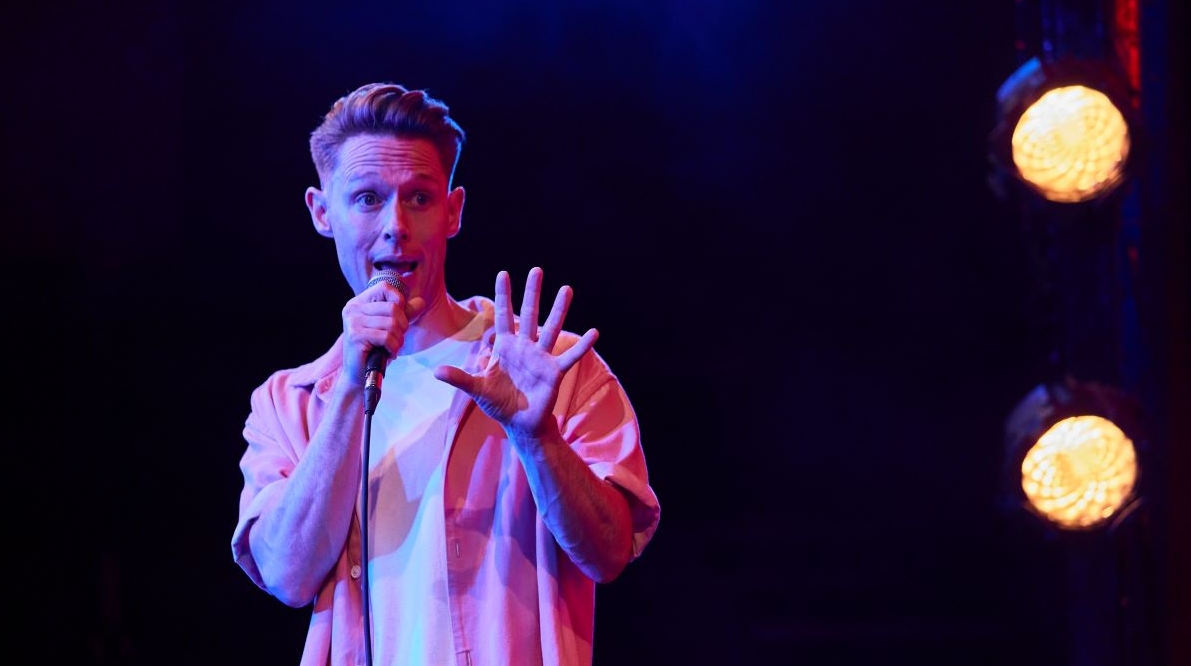While many shows that succeed at the Edinburgh Fringe later transfer to London, it is by no means certain that they will do well in larger venues that dissipate the intimacy and intensity of the original venue and before a different audience not wired into the Festival ambience. However, in the case of this one-man show the relocation is a triumph and a revelation.
Samuel Barnett will be well known to audiences, whether from his breakthrough role in ‘The History Boys’, or in many roles since on the stage, television and film. But he has perhaps never before embraced a contemporary gay persona so comprehensively in this multi-layered, full-on portrait of sexual encounters, self-loathing and the nature of comedy.
This really is a one-man show. In front of a simple traditional red curtain we have an open stage with no more than a stool and a microphone on its stand. Barnett enters, stifles an anticipatory round of applause, and then holds our attention and manipulates our emotions with rare skill and carefully calibrated variety for the next hour.
His role is described simply as ‘The Comedian’, which is true only so far as it goes. The character is a professional comedian and several of the scenes and themes focus on the secrets of a comedian’s art. Which jokes work and why? How do you beguile and win over different audiences? Why is it that so much humour depends on externalising and making universal the inner angst and self-doubt of the person behind the comic persona?
But there is a lot more here than simply the traditional trope of the sad clown. Dos Santos offers a very credible account of gay male sexual and romantic encounters in the present day mediated through the persona of someone who longs for love but who doubts his own worth to the extent of consistently subverting promising possibilities when they come along. So that when a genuine relationship with an American man is within reach ‘The Comedian’ seeks to undermine it with other encounters in which he has only the most ephemeral of investment. Dos Santos also offers many one-liners, both filthy and elegantly turned, that remind you of Alan Bennett. And of course Barnett has an enviable track record in bringing such dialogue to life. These encounters are characterised with a fine range of voices and acting by Barnett that takes you into the moment with convincing plausibility, brilliant timing and a genuine frisson of pathos.
There is one aspect that is not entirely persuasive. The American lover cannot laugh – apparently – without severe danger of fatal physical consequences. This conceit is used to good comic effect and also to raise deeper questions about taboos in comedy and whether we all have it within us to kill the thing or person we love. But the device still seems contrived and artificial in a work where everything else comes together effortlessly. It is turned to telling effect in the end, but is the price just a bit too high?
However, in all this is an evening to relish – for wit, for technical skill, and the chance to witness an actor at the very top of his game.
Not to be missed.

